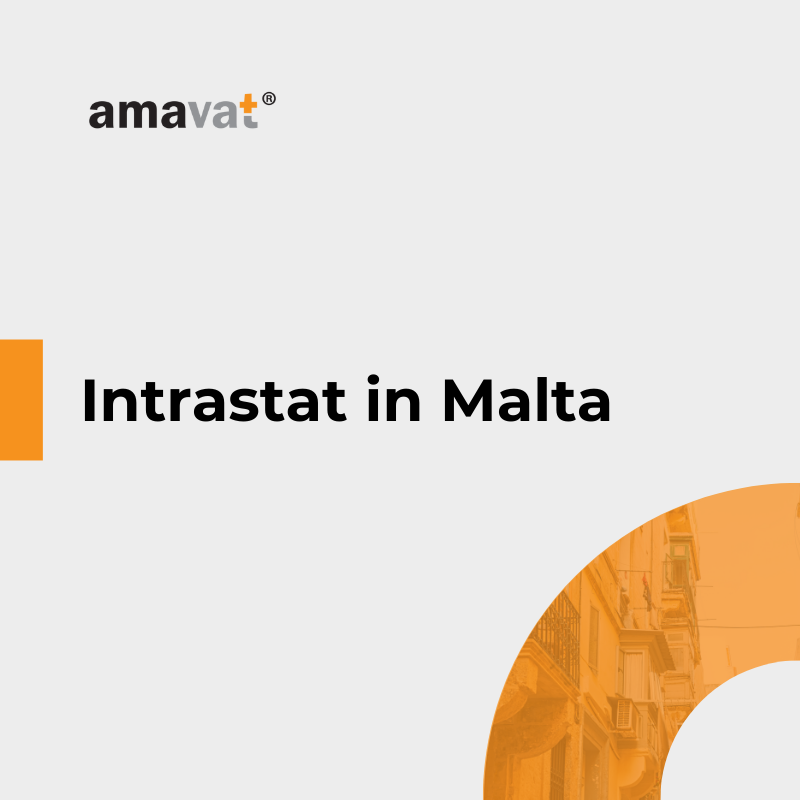Intrastat in Malta: Everything you need to know

Spis treści
Authorities responsible for the Intrastat system in Malta
The National Statistics Office (NSO) is responsible for receiving and managing Intrastat declarations in Malta. Businesses submit their monthly reports to this office, and any questions or concerns can be addressed to the International Trade Statistics Unit. Contact details for the office are as follows:
- Address: Lascaris, Valletta, VLT 2000, Malta
- Phone: +356 2599 7161‐9
- Email: intrastat@gov.mt
- Website: https://intrastat.nso.gov.mt
Deadlines for submitting declarations in Malta
Intrastat declarations must be submitted monthly. The final deadline for submitting documents is the 10th working day of the month following the reporting period. For instance, declarations for transactions made in January must be submitted by the 10th working day of February. Meeting these deadlines is essential to avoid penalties for delays.
Thresholds for reporting transactions
To be required to submit Intrastat declarations in Malta, a company must exceed specific value thresholds for transactions. The thresholds in Malta are low, set at:
- Exports (dispatch of goods): €700
- Imports (arrival of goods): €700
Exceeding these amounts obliges the company to report transactions starting from the first month in which the threshold is exceeded. It is worth noting that Malta does not offer a simplified form of Intrastat declarations, meaning even small businesses that exceed these thresholds must submit full reports.
Electronic submission of declarations
In Malta, Intrastat declarations are submitted exclusively in electronic form. To submit a declaration, a business must first register in the system by completing a registration form (VAT/INTRA/105/2004) and emailing it to intrastat@gov.mt. The form can be downloaded directly from the NSO website. Once registered, the company receives login credentials and an activation link, valid for 48 hours. The declaration submission process is conducted through a special online platform available on the NSO website, where the user logs in using their credentials. It is important to note that paper declarations are no longer accepted, meaning businesses must comply with the electronic system requirements.
Corrections in Intrastat declarations
Occasionally, it may be necessary to make corrections to a submitted declaration. If a declaration is marked as “incomplete,” the business can edit and make the necessary changes. However, for errors in an already approved declaration, direct contact with the International Trade Statistics Unit is required by sending an email to intrastat@gov.mt. The email should include the declaration number requiring correction, allowing the relevant authorities to make the appropriate adjustments.
No obligation for zero declaration
If a company has not conducted any reportable transactions within the Intrastat system during a given month, there is no obligation to submit a so-called zero declaration. This means that a business does not need to report the absence of goods movements for a given month.
Special cases
Certain situations require additional clarification regarding Intrastat declarations in Malta. These include:
- Consignment sales: Goods sent to another EU member state to establish a warehouse from which they will later be distributed must be reported in the Intrastat system.
- Credit note without goods return: In the case of a credit note issued without the return of goods, it does not need to be included in the Intrastat declaration. However, NSO staff may make adjustments to previous declarations to reflect the actual transaction value.
Penalties for non-compliance
Failure to comply with the requirements for submitting Intrastat declarations can lead to serious consequences. Malta’s Commissioner for Revenue and Customs has announced that it will actively enforce the obligation to submit declarations and impose financial penalties on companies that fail to meet this obligation. The fines range from €700 to €3,500 for each violation, with criminal proceedings possible in certain cases.
VAT rates in Malta
In Malta, the standard VAT rate is 18%, making it one of the lowest in the European Union. Additionally, some goods and services may be taxed at reduced VAT rates of 12%, 7%, 5%, or 0%, depending on the type of products or services that meet specific legal criteria. Learn more from our article: VAT in Malta: Rates, registration, and entrepreneurial obligations.
Summary
Submitting Intrastat declarations in Malta is a requirement for any business that exceeds the transaction value thresholds with other EU countries. This process is entirely electronic and requires timely submission of reports to avoid financial penalties. Entrepreneurs should be aware of the applicable deadlines and the detailed requirements related to the accuracy of submissions to effectively fulfill their legal obligations and avoid potential sanctions.





